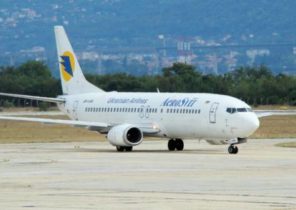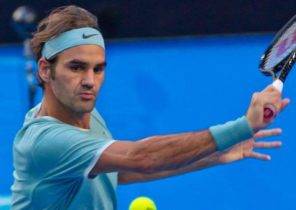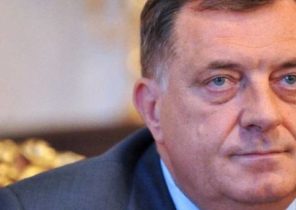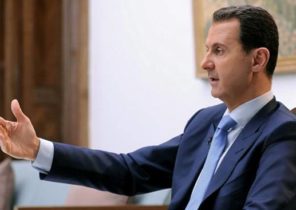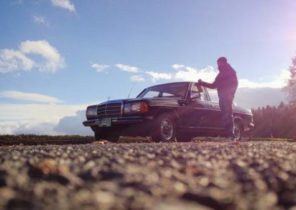
DNEPROPETROVSK, UKRAINE (NRK), When the Ukraine in 2014, the war began, Igor Filippov could not stay away. But the price that the gardener had to pay to go to a soldier in the war, high. Today he had a disability.
“I think I was just unlucky. In the day did hurt me one”, — says Igor Filippov with a slight smile on my face when I see him in the Mechnikov hospital in Dnepropetrovsk, a large industrial town in the South-East of Ukraine.
He is in green uniform with the insignia of the battalion of the OUN on the one sleeve. On his chest two medals, he got them for exploits during the war.
“I got three wounds. Cheek, in right lung near the heart and in the left shoulder. It all happened in the Sands, directly at the Donetsk airport”, — says Igor. Although since the injury more than a year shows that he still can not talk about these events.
Together with his civil wife Catherine Margitich he still continues to fight as a volunteer in the rear.
War volunteers
Igor Filippov — one of many, on whose shoulders fell the main burden of the struggle waged by Ukrainian troops against Pro-Russian separatists in the East of the country.
After Pro-Western forces in February, 2014, came to power after the uprising on the Maidan in the Ukrainian capital Kiev and forced the legally elected President Viktor Yanukovych to flee Pro-Russian separatists took control of the local administration building in the East of the country.
In addition, they are using the Russian army has ensured that the Crimean Peninsula as a result of questionable referendum passed to Russia.
At some point there was a danger that the East and South of Ukraine can become part of Novorossia, the Ukrainian region that the President of Russia Vladimir Putin has defined as part of the Russian cultural sphere. Discard the separatists, receiving significant support from Russia in the form of volunteers and weapons, was possible only thanks to a hastily created units of volunteers.
The battalion OUN
“I felt that I couldn’t just sit and watch on TV as my country is collapsing,” says Igor Filippov.
He was born in 1962 in another large industrial center in the East of Ukraine — Zaporozhye. He worked for many years abroad as a gardener and decorator, in particular, 11 years in Spain.
Although Zaporozhye, Dnepropetrovsk, mainly Russian-speaking industrial city in the East of Ukraine, they have also become strong reference points of the Ukrainian nationalists.
“I enrolled in the battalion of the OUN”, — says Igor Filippov. “Initially, my task was to deliver ammunition and food to soldiers fighting at the front, and pick up the wounded here in the Dnieper, in the hospital.” As all parties to the conflict in Ukraine, Igor also got the nickname. And soon he was known only as “the Spaniard”.
 © RIA Novosti, Petro Zadorozhnyy | go to photobacteria the Ukrainian insurgent army (OUN-UPA)
© RIA Novosti, Petro Zadorozhnyy | go to photobacteria the Ukrainian insurgent army (OUN-UPA)
The OUN, or Organization of Ukrainian nationalists, rooted in the struggle for independence of Ukraine in 1930-ies. She is known for flirting with the German Nazis during the Second world war. Nevertheless, the Germans put the OUN leader Stepan Bandera in prison, and in 1959 it was liquidated by Soviet intelligence, the KGB.
Hot spot Sands
When the conflict in Ukraine in the summer of 2014 turned into a full-scale war, the Ukrainian army was quite weak. Thanks to the contribution of the volunteers from organizations such as the OUN and the “Right sector” (a terrorist organization banned in Russia — approx. ed.) it became possible to push back Pro-Russian separatists and their Russian sponsors.
“Gradually I began to perform the functions of nurse,” says Igor, “the Spaniard,” Filippov. During the first year of service as a volunteer he saved 30 injured Ukrainian soldiers took them from the combat zone to hospitals in Dnepropetrovsk, such as this.
But often it was too late, and many of his fellow soldiers died literally in his arms.
Economist Katerina Margitich was then a volunteer in the Mechnikov hospital. Soon they Igor began to live together. They are one of many couples who found each other in the struggle for independence of Ukraine.
In this hospital, worked a few hundred volunteers, they helped the wounded soldiers and took medication and food. At the end of August 2014, when the front in the Donbas were the most difficult battles in the hospital in Dnipropetrovsk, which, of course, was not ready for such a situation, there were hundreds of wounded.
18 command post in the Sand
In 2015, Igor Filippov joined the ranks of active soldiers, he was determined to serve in a place that was called “command post of the 18” in the small village of Sands right next to the Donetsk airport.
This is one of the places on nearly 500 km of front line in the Donbas, where for more than two years is trench warfare, both sides hundreds of people died or were injured. From the Sands, the warring parties have divided the distance only half a kilometer.
At the end of August 2015 came Igor Filippov become a victim of the war.
“I am, however, lucky me relatively quickly delivered here in Mechnikov hospital”, — says Igor.
X-rayed and the photographs I saw that one of the bullets had nearly hit in the heart, which most likely would mean death. Igor Filippov was transported first by ambulance and then by helicopter to Dnipropetrovsk, where doctors have already had considerable experience of treatment of gunshot wounds. Certainly, and it also helped him to get out.
Rehabilitation in Poland
Thanks to Kate, who was around, he managed to recover, in particular through rehabilitation programmes, which he passed in Poland.
Poland has consistently supported Ukraine in fight against Pro-Russian separatists and Russia, although historically between the two countries has always been a complicated relationship.
OUN, which includes Igor and Katya, blame the fact that she took an active part in the so-called “Volyn massacre” in 1943, when they were killed thousands of poles living in present Western Ukraine.
But in recent decades Ukrainian and Polish historians together tried to understand the difficult chapters of the General history and policies of both countries asked for forgiveness for the crimes committed.
“Today, I’m so-called disabled”, — says Igor Filippov.
Part of the nerves in his arm severed, so it is unlikely he will ever be able to again become a full-fledged soldier. But he and Kate will still continue to fight separatists in its own way.
The struggle continues
“I am actively involved in training new volunteers for the front,” says Igor, who is in his hometown of Zaporozhye in January of this year began to conduct short-term training of volunteers who wish to serve in the battalion of the OUN at the front.
Part, which served Igor, now transferred from the Sands under the Donetsk to the North, in the village of the Crimean in Luhansk. This is another hot spot at the front, where every day there are shootings, despite a new ceasefire agreement, concluded on December 25.
Igor and Katya, even in the new year’s eve went to the East, to the front with reinforcements for the soldiers. From the Sand they brought with them the black cat, which Igor found in a bombed-out village.
“I think that this conflict, unfortunately, will not end soon”, — said Igor Filippov.
Ukraine is still not strong enough to use military means to regain the areas lost in the Donbass. In addition, it is not easy to reconcile with the separatists after so much blood.
“It can take a long time to heal all wounds. What happened, passed on from male to male, from woman to woman. It may be many decades before we’ll get through this,” says Filippov.

